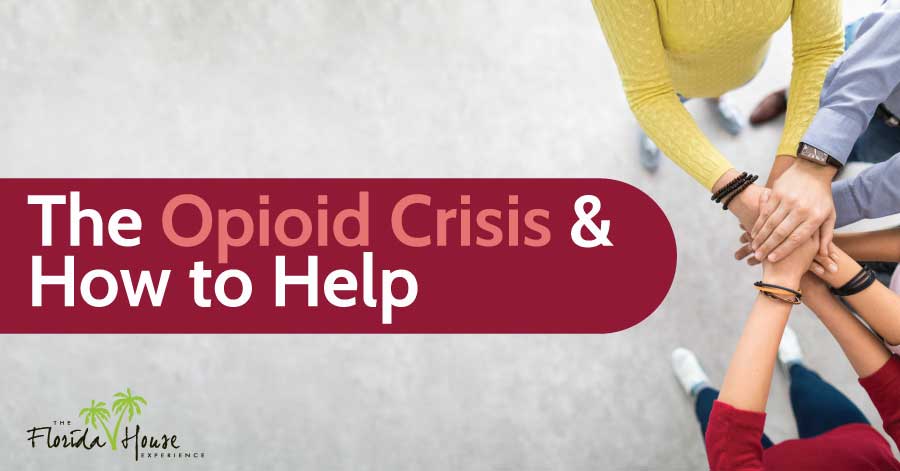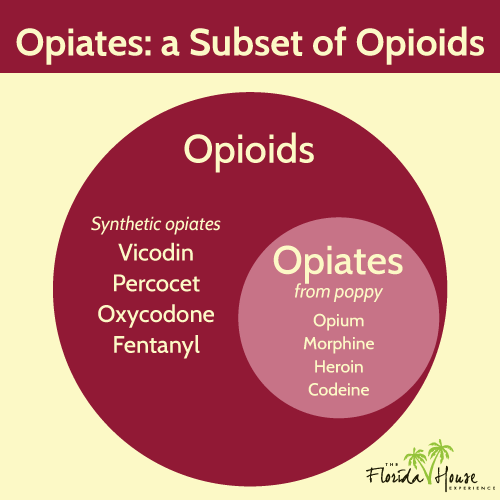
The opioid crisis in the United States is worsening each and every year. In the midst of this trying time in our world, it is important to understand what exactly opioids are, why the addiction rate is growing, and how you can help yourself and your loved ones to stay safe.
Drugs like fentanyl, heroin, and pain relievers all fall under the umbrella of opioids, a broad category which includes legal and illegal drugs that are either synthetic or natural. Opioids are derived from sap produced by the poppy seed plant and may be chemically altered while opiates are the natural form from opium. They are all incredibly addictive due to the pleasure they produce in the body upon binding to opioid receptors in the brain.
Despite the dangers, some opioids are available with a simple prescription and are routinely recommended by doctors without care for the possible development of an addiction, which is why addiction rates continue to rise. This is such an issue that desperate individuals engage in a practice known as doctor shopping, seeking to gain access to as many opioids as possible from multiple healthcare providers.
It is necessary to encourage those you know to seek treatment, in addition to demanding policy change to hold doctors responsible for their carelessness to put an end to the opioid crisis.
What are Opioids?

Opioids were originally prescribed to copy the effects of morphine, providing individuals with pain relief while also replacing their discomfort with an unprecedented sense of euphoria. However, with time, the ease at which they could be acquired created an entire population within the country of people with addiction, leading to the current opioid crisis.
Addictive by nature, opioids were pushed by doctors to treat simple things like diarrhea and coughing and were often combined with other drugs like aspirin without the patient knowing. Many began to develop a dependence on the small presence of opioids within their medication, needing higher concentrations to achieve the same high further into treatment. Opioids are most commonly known in the following forms:\
Opiates:
- Heroin (opiate)
- Opium (opiate)
- Codeine (opiate)
- Thebaine (opiate)
- Morphine (opiate)
Opioids
- Fentanyl
- Buprenorphine
- Hydrocodone
- Methadone
- Oxycodone
- Percocet
- OxyContin
In the gastrointestinal tract and central nervous system, opioids bind to protein molecules in the membranes of nerve cells. From there they send signals to the brain, producing an “opioid effect” characterized by pain blocking, slowed breathing, calmness, and anti-depressing effects. They are prescribed because the body is sometimes not able to create enough opioids to give the person such a feeling of relaxation and happiness, on top of masking severe or chronic pain. Opioids are broken down into the following four categories:
- Opium alkaloids (codeine and morphine)
- Semi-synthetic opioids (oxycodone, buprenorphine, and heroin)
- Endogenous opioids that are a natural product from the body (endorphins)
- Completely synthetic opioids (methadone) with different structures than opium alkaloids
Opioid Crisis in the United States
 More than 115 people in the United States die every day from opioid overdose. The Centers for Disease Control and Prevention have found the opioid crisis costs an estimated $78.5 billion dollars a year. This figure involves the costs of lost productivity, criminal justice inference, addiction treatment, and healthcare; but is only applicable to prescription opioid abuse.
More than 115 people in the United States die every day from opioid overdose. The Centers for Disease Control and Prevention have found the opioid crisis costs an estimated $78.5 billion dollars a year. This figure involves the costs of lost productivity, criminal justice inference, addiction treatment, and healthcare; but is only applicable to prescription opioid abuse.
In the late 1990s, pharmaceutical companies swore that patients would not become addicted to prescription opioid pain relievers. Believing this, the medical community began to prescribe the drugs at an increasing rate. Before it became clear that such medications could potentially be highly addictive and deadly, they had been used and abused for years and the damage was done.
Overdose rates spiked with 33,000 Americans losing their lives in 2015. By this time, heroin and fentanyl had also become widely available in addition to prescription medication. Reports showed that same year almost two million people in the country were struggling with opioid pain relievers having developed a substance use disorder. Meanwhile, more than half a million were dealing with heroin use disorder. Some of the facts regarding the opioid crisis in America are:
- Almost 21 to 29 percent of people prescribed opioids for pain, abuse them.
- Between 8 and 12 percent of them struggle with an opioid use disorder.
- Some 4 to 6 percent who abuse prescription opioids begin using heroin.
- An estimated 80 percent of people who use heroin have abused prescription opioids.
- From July 2016 to September 2017, overdoses increased thirty percent in 45 states.
- The Midwest had a 70 percent increase in overdoses in that same time period.
- In large cities in some sixteen states, overdoses spiked by 54 percent.
How to Help the Opioid Crisis
The opioid crisis would not be complete without doctor shopping. Doctor shopping is defined as seeing multiple treatment doctors, during a single illness episode, to get prescription medications that would otherwise be illegal. In order to do this, some patients feign sickness or even hurt themselves to get an appointment with a doctor. Others will exaggerate their symptoms or pretend they lost a prior set of drugs. Therefore, curbing the phenomenon of doctor shopping will help to prevent addicts from getting the drugs they crave. To do so there needs to be some ownness placed on doctors and support from the public for policies that make it harder to access opioids.
Doctors should be encouraged to use the databases they have access to in order to check the history of their patient’s opioid use and whether or not they are combining drugs. These databases, called prescription monitoring programs, will note if patients are receiving their painkillers from other places. Providers should also assess patients, looking into their medical history and family backgrounds to see if they are at risk of opioid abuse. Knowing this information will help them to prescribe different medications, alert other potential healthcare providers about doctor shopping if that is occurring, in addition to notifying families of possible addiction. Doctors should also be required to take courses on how opioids have affected the public.
Thankfully, new laws are being promoted that will also help to reduce doctor shopping and slow the growth of the opioid crisis. Several states have passed laws to reduce the number of opioids that can be prescribed for pain relief in addition to completing banning them from being prescribed for chronic pain. These rules will decrease the rates of both opioid abuse and over prescription. The public should get behind these initiatives and call their representatives to ensure they are being implemented in their own states as opioid abuse is now a crisis for the entire nation.
The Massachusetts Department of Public Health discovered that within five years, working individuals constituted almost seventy-five percent of deaths from opioid overdose. Thus, it is imperative that individuals are motivated by their family, friends, and colleagues to address their addiction even if that means taking a break from their careers. Companies should allow their employees to receive treatment for opioid use disorder without fearing the loss of their jobs or ostracization from the community. Perhaps a business could cover the cost of monitoring and treatment for workers struggling with the drug to boost their working productivity later on.
Contact Florida House
More than 300,000 Americans have died from opioid overdose since the year 2000. President Donald J. Trump declared the opioid crisis a national Public Health Emergency under federal law on October 26th, 2017, mobilizing his administration to combat opioid abuse. However, it is important you know the ways in which you can also help. You may have a family member, friend, neighbor, or colleague suffering from opioid addiction. It is a problem that is beginning to impact all communities and is not being helped by doctors who freely prescribe such drugs. If you or someone you know is struggling with addiction, learn more about how to fight this opioid crisis in the United States by speaking with one of our highly trained professionals at 833-596-3502.






